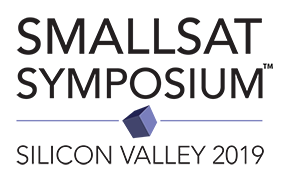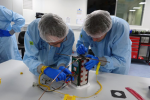
ESA invites university student teams from ESA Member States, Canada and Slovenia that are developing a one, two or three-unit CubeSat with mainly educational objectives to propose their satellite for the new edition of the “Fly Your Satellite!” (FYS) program.
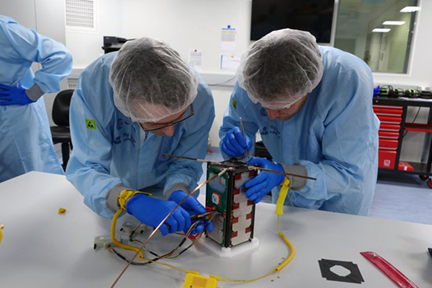
Students performing checks on their CubeSat.
Fly Your Satellite! is an educational program for university students, created by ESA after the launch of seven university cubesats on the 2012 Vega maiden flight. Six teams participated in the first edition of the program, which concluded in 2016 with the launch of three satellites, while in parallel a pilot edition was undertaken to deploy a satellite from the International Space Station. The second edition of Fly Your Satellite! is currently ongoing since 2017, and participating university teams are advancing closer towards testing and launch. The call for proposals for the third edition is now open.
The aim of the program is to support university student teams throughout the design, assembly, integration, testing, and verification process of their educational cubesats. By participating in the program, students will implement standard practices for spacecraft development; receive support from experienced ESA specialists; attend tailored training courses; and will be offered access to state-of-the-art test facilities.
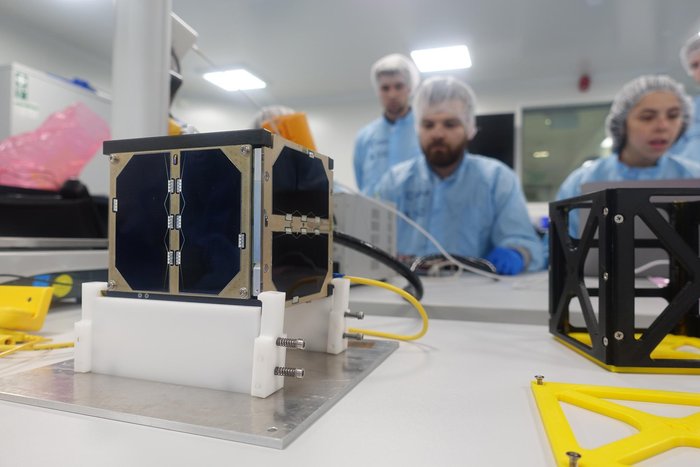
University CubeSat undergoing functional checks.
The program is part of the ESA Academy and will make use of dedicated facilities located at ESA’s Education Centre in ESEC-Galaxia (Belgium): the Training and Learning Facility, where training courses will be offered and which is also equipped with a Concurrent Design Facility; and the CubeSat Support Facility, a cleanroom laboratory with test facilities.
For the current call, launch opportunities to LEO are envisioned. Teams should indicate in their cubesat Proposal the range of orbits to which they are compatible in terms of mission objectives, ground coverage, system performance, etc. Launches from the International Space Station may be offered within the program, and as those launches may be more readily available due to recurrent resupply flights, compatibility with the ISS safety requirements and orbit is strongly recommended.
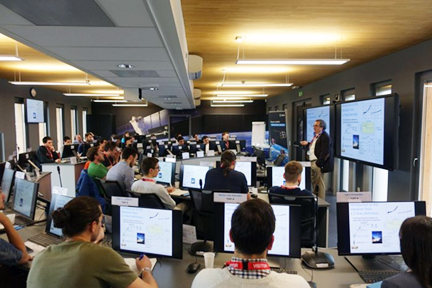
CubeSat teams in training session.
Student teams can apply by submitting a proposal describing their cubesat project and demonstrating its maturity. Throughout the proposal, teams must show that the project is compliant with the programmatic and technical requirements of the Fly Your Satellite! program.
Teams accepted into the program will work on different stages of the final design, assembly, integration, and verification of their cubesat and ground station, in preparation for the launch and mission operations. ESA specialists will guide them through the necessary processes and preparation of requested documentation packages and will evaluate the student team’s work. The program is structured in multiple phases, following the typical development cycle of a space mission, and student teams will need to pass project reviews to advance to each subsequent phase. The launch will be offered by ESA to those teams that demonstrate the readiness of their spacecraft and ground segment and compatibility with the technical and safety requirements. Once in orbit, teams are supported in the operational phase and will share mission data and technical or scientific results.
This opportunity is open to university student teams from ESA Member States, Canada and Slovenia. To participate in the Fly Your Satellite! programme, consult the following pages: How to apply and Conditions to apply.
The submission deadline for proposals is October 13, 2019, at 23:59 CEST.
A Selection Workshop for the shortlisted teams is expected to occur in December of 2019 at ESTEC in Noordwijk, the Netherlands.
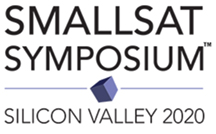
For all involved in the satellite and space industry and the various market segments that add value to these dynamic environments, the 2020 SmallSat Symposium is truly worth your consideration for attendance.
The SmallSat Symposium is hosted by Satnews Publishers which, since 1983, has been a provider of a satellite news, media and events. This information packed forum was created to enable you and your company to secure a larger portion of market share as well as to take part in the next stages of your company’s or organization’s growth.

The personal connections at the SmallSat Symposium enable attendees to network with established organizations, subject-matter experts as well as ‘New Space’ entrants.
The SmallSat Symposium will focus on new technologies and the business environment that is shaping the implementation of smallsat constellations, smallsat launchers, the challenges facing the smallsat developer and actors as well as the enormous benefits of these advanced technologies that will benefit our world.
This event assembles more than 100 diverse speakers, all of whom possess deep industry experience. Additionally, numerous opportunities exist to mingle and network with peers while enjoying exceptional, complimentary meals and refreshment breakfast.
